- 2022 Dean’s Big Idea II Seed Grant Awardees
- 2021 Dean’s Emerging Scholars Seed Grant Awardees
- 2020 Dean’s Big Idea Seed Grant Awardees
- 2019 Dean’s Emerging Scholars Seed Grant Awardees
- 2017 EHE Seed Grant Awardees
- 2016 EHE Seed Grant Awardees
2022 Dean’s Big Idea II Seed Grant Awardees
For this year’s seed grant program, faculty PIs were asked to engage at least one EHE faculty member as Co-PI as well as one community partner. Faculty were also encouraged to include one diversity post-doctoral researcher. These 2-year projects started January 1, 2023.
Arya Ansari (Human Sciences)
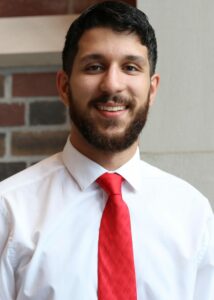
coPI: Jay Plasman (Educational Studies)
coPI: Kelly Purtell (Human Sciences)
coPI: David Julian (CETE)
Postdoc: Cyndi Robertson (Human Sciences)
Postdoc: Noemi Linares-Ramirez (Educational Studies)
Graduate Student: Maria Abdul-Masih (Human Sciences)
Graduate Student: M. Nicole Buckley (Human Sciences)
Graduate Student: Summer Luckey (Human Sciences)
Community Partner: Columbus City Schools
o Tyree Pollard, Director of Attendance
o Dionne Blue, Chief Equity Officer
Community Partner: Mayor Ginther’s Office
Reducing Chronic Absenteeism in Columbus City Schools: A School District-University Partnership
This proposal aims to evaluate Columbus City School’s attendance improvement strategies focused on prevention and early intervention to reduce chronic absenteeism among pre-K-12 students, to assess the root causes of chronic absenteeism among pre-K-12 students in Columbus City Schools, and to identify potential points of improvement and new promising interventions and evaluate their effectiveness in reducing chronic absenteeism among pre-K-12 students in Columbus City Schools.
Matthew Brock (Educational Studies)

coPI: Shayne Piasta (Teaching and Learning)
Postdoc: Tuba Gezer (Educational Studies)
Graduate Student: Kaitlyn Viera (Educational Studies)
Graduate Student: Kate Anderson (Educational Studies)
Graduate Student: Jenna Hurlburt (Educational Studies)
Graduate Student: Sarah Hudler (Educational Studies)
Graduate Student: Sara Martin (Educational Studies)
Community Partner: Reynoldsburg City Schools
Community Partner: Dublin City Schools
Community Partner: Bridgeway Academy
All Children Deserve Effective Reading Instruction: Effects of Literacy Programs for Students with Developmental Disabilities who are Nonverbal
This proposal intends to transform our understanding of how best to teach nonverbal students to read by impelling change in early childhood education to ensure equitable literacy opportunities for all children. Specifically, the proposal will research the effects of the Early Literary Skills Builder on literacy skills of nonverbal students compared to a control group, the effects of Accessible Literacy Learning on literacy skills of nonverbal students compared to a control group, the differences in effects between Early Literary Skills Builder and Accessible Literacy Learning, and if individualized adaptations improve the rate of progress in students that demonstrate minimal progress after receiving one of the interventions.
Allen Mallory (Human Sciences)

coPI: Lauren McInroy (College of Social Work)
coPI: Mollie V. Blackburn (Teaching and Learning)
Postdoc: Leslie K Morrow (EDGE)
Community Partner: Kaleidoscope Youth Center
Understanding the psychosocial and behavioral health benefits of providing culturally informed services and housing to sexual and gender diverse youth experiencing homelessness
The current project aims to understand how the various services provided to sexual and gender diverse youth experiencing homelessness at the
Kaleidoscope Youth Center help to reduce negative outcomes (i.e., poor mental health and substance misuse) and increase positive outcomes (i.e., independent housing and psychosocial well-being).
Tonya Orchard (Human Sciences)

coPI: Irene Hatsu (Human Sciences)
coPI: Brian Focht (Human Sciences)
coPI: Darrin Aase (College of Medicine)
coPI: Bridget Oppong (OSU James CCC)
coPI: Nicole Williams (Division of Medical Oncology)
coPI: Patrick Schnell (College of Public Health)
Postdoc: John Paul Anders (Human Sciences)
Key Personnel: Kellie Weinhold (Research Coordinator Orchard Lab)
Graduate Student: Zihan Zhang (Orchard Lab)
Community Partner: Lesley Glenn, CEO ProjectLife MBC
Community Partner: Mita Patel, MD, Director, Breast Cancer Program, Mercy Regional Medical Center – Lorain, OH
Protecting the brain from toxic side effects of chemotherapy: a pilot study of a MIND diet intervention in women undergoing active treatment for breast cancer
This project aims to evaluate the efficacy of a remotely delivered, highly accessible, 12-week Mediterranean Intervention for Neurodegenerative Delay diet intervention vs. General Health Curriculum control to reduce Cancer-related cognitive impairments symptoms in diverse women newly
diagnosed with invasive Breast Cancer starting systemic therapies. It also aims to evaluate the sustainability of dietary changes and outcome measures 6 months post-intervention.
2021 Dean’s Emerging Scholars Seed Grant Awardees
This year’s seed grant program requires assistant professors to collaborate with tenured faculty.
Sophia Jeong & Azita Manouchehri (Teaching & Learning)
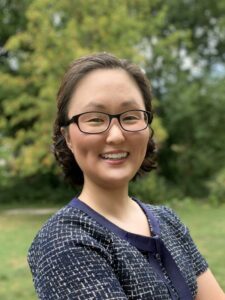
Secondary Preservice Science Teachers’ Learning as Becomings through the Lens of Rhizomatic Thinking
This proposal focuses on the following research question: How do science teacher educators conceptualize preservice science teachers’ (PST) learning as becomings in such a way to support the emergence of their diverse conceptions of equity?
Sophia Jeong, Azita Manouchehri & Peter Sayer (Teaching & Learning)
Cultivating Innovative Methodologies and Transdisciplinarity through Dialogic Reflexivity
The purpose of this proposal is to design a set of two conferences which support communities of practice for emerging scholars with both theoretical and pragmatic aims in education.
Tanya Middleton & Collete T. Dollarhide (Department of Educational Studies)
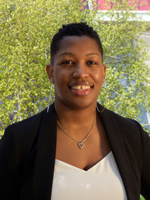
Pathways to the Professorate in Counselor Education
This project will utilize a mixed method approach with resulting data that will aide in formulating preventative and supportive measures for African Americans/Blacks at the graduate and doctoral level, working towards addressing the lack of diversity in Counselor Education.
Ashlyn Pierson (Teaching and Learning), Tiffany Wild (Teaching and Learning) & Matthew Brock (Educational Studies)
Project MIST (Modeling for Inclusive Science Teaching): Developing Effective Science Instruction for Students Classified as English Learners and Students with Disabilities

This project aims to support teachers by building a Professional Learning Community (PLC) of researchers and secondary science teachers focused on equitable teaching. Being part of the PLC will help teachers integrate disciplinarily practices with inclusive teaching practices that can support students classified as ELs and students with disabilities. Studying this PLC will contribute to our understanding of collaborative researcher-practitioner learning and studying the practices developed and refined by this PLC will contribute to our understanding of inclusive science teaching.
2020 Dean’s Big Idea Seed Grant Awardees
This year’s seed grant program required a community partner and collaboration across departments. These projects were supposed to start Fall 2020 but because of the COVID pandemic, they will start July 1, 2021.
Kwame J.A. Agyemang (College of Education and Human Ecology, Department of Human Sciences)
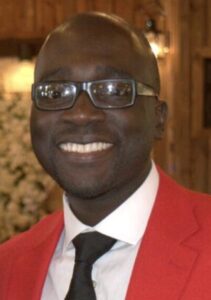
coPI: Carl M. Maresh (EHE, Department of Human Sciences)
coPI: David A. Delaine (College of Engineering, Department of Engineering Education)
coPI: Joshua J. Joseph (College of Medicine, Division of Endocrinology, Diabetes, and Metabolism)
Postdoc: Jerraco Johnson (EHE, Department of Human Sciences)
Faculty Leaders in Training: Supporting Black Faculty through Wellness-Integrated Informal Mentorship around Leadership
This work will investigate a program that links leadership, wellness, and community to determine its impact on Black women and men faculty members.
David Bloome (College of Education and Human Ecology, Department of Teaching and Learning)
Community Partner: National Alliance on Mental Illness (Franklin County)
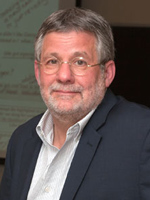
coPI: Paul Granello (EHE, Department of Educational Studies)
GRA: Alyssa Chrisman (EHE, Department of Teaching and Learning)
GRA: Doricka Menefee (EHE, Department of Teaching and Learning)
Undergrad: Darby Bauman (EHE, Department of Teaching and Learning)
Literacy Practices as Barriers and Assets for People 18 to 40 years old with Bipolar Conditions
This project is for a pilot study of the literacy practices that people with bipolar condition, ages 18 to 40 encounter in their pursuit of treatment and in their daily lives.
Xin Feng (College of Education and Human Ecology, Department of Human Sciences)

Community Partner: Grace Early Childhood Center (Vineyard Community Center)
coPI: Leslie Moore (EHE, Department of Teaching and Learning)
coPI: Ping Zhang (College of Engineering, Department of Computer Science and Engineering & College of Medicine Department of Biomedical Informatics)
GRA: Karis Inboden (EHE, Department of Human Sciences)
GRA: Meingold Chan (EHE, Department of Human Sciences)
GRA: Micah Gerhardt (EHE, Department of Human Sciences)
Undergrad: Sheridan Cleave (EHE, Department of Human Sciences)
Children’s Biobehavioral Regulation of Emotion in Naturalistic Environment and the Effect of Maternal Depression
This project will employ innovations in artificial intelligence (AI) to develop tools for the automated processing of audio recording of child speech and ambient sound.
Edward C. Fletcher Jr. (College of Education and Human Ecology, Department of Educational Studies)
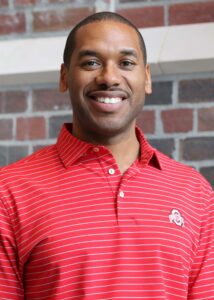
Community Partners: Metro Early College High School
coPI: Scott Graves Jr. (EHE, Department of Education)
coPI: Steven Stone-Sabali (EHE, Department of Educational Studies)
Postdoc: Rhodesia McMillian (EHE, Department of Educational Studies)
GRA: Kyanna Johnson (EHE, Department of Educational Studies)
Undergrad: Paul Johnson (EHE, Department of Educational Studies)
Facilitating Pathways to Success for High-Achieving Pre-Collegiate African American Males in STEM: Pilot Project
The goal of this project is to understand how participation in a high school urban STEM program helps to expand the pipeline and promote a viable pathway to STEM majors and careers for high-achieving (students with a 3.3 GPA or higher), low-income (eligible for free and reduced lunch) African American male students within the context of school supports, their own schooling experiences, and family support systems.
Samuel R. Hodge (College of Education and Human Ecology, Department of Human Sciences)
Community Partner: Afterschool Programs (ASPs) Teachers/Staff, Mayagüez, Puerto Rico

coPI: Irene Hatsu (EHE, Department of Human Sciences)
coPI: T.M. Ayodele Adesanya (College of Medicine)
GRA: Amanda Cacho Parrilla (EHE, Human Sciences)
Postdoc: Jerraco Johnson (EHE, Department of Human Sciences)
Undergrad: Gyai Tariq Kwabena Gyamerah (EHE, Department of Human Sciences)
Preadolescents – Teaching, Encouragement, Exercise, Nutrition, and Support (P-TEENS) Project
This project will address several knowledge gaps in weight management and physical activity intervention research, particularly interventions addressing the physical activity needs of Latinx preadolescents.
Sarah N. Lang (College of Education and Human Ecology, Department of Human Sciences)
Community Partner: Columbus Child Care Services Association, oversees the National T.E.A.C.H. program
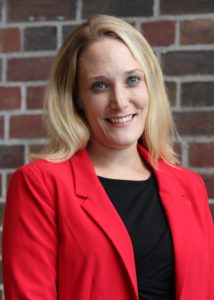
Community Partner: Future Ready Columbus co-PI: Arya Ansari (EHE, Department of Human Sciences)
coPI: Donna Y. Ford (EHE, Department of Educational Studies)
coPI: Penny A. Pasque (EHE, Department of Educational Studies)
Postdoc: Rosalie Odean (EHE, Department of Human Sciences)
Postdoc: Sonia Girón (EHE, Department of Human Sciences)
GRA: Meghan L. Breedlove (EHE, Department of Educational Studies)
Undergrad: Brittany Peurie (College of Arts and Sciences)
Undergrad: Rachel Schwab (EHE, College of Education and Human Ecology)
Creating Culturally Responsive and Equitable Early Childhood Programs: Investigating Current Practices, Developing and Piloting New Professional Development
The aim of this project is to design and pilot an on-line, evidence-based professional development course that specifically targets early childhood education teachers’ knowledge and skills around supporting equity and diversity.
George Newell (College of Education and Human Ecology, Department of Teaching and Learning)

coPI: Dr. Lin Ding (EHE, Department of Teaching and Learning)
coPI: Dr. Karen Irving (EHE, Department of Teaching and Learning)
coPI: Dr. Mandy Smith (EHE, Department of Teaching and Learning, Science, Technology)
Teaching and Learning Scientific Argumentation in Secondary School Classrooms
The aim of this research project is to develop an initial account of a research-based instructional intervention for improving the teaching and learning of scientific argumentation in secondary science classrooms.
Ann A. O’Connell (College of Education and Human Ecology, Educational Studies)
Community Partner: Addis Ababa University, Addis Ababa, Ethiopia
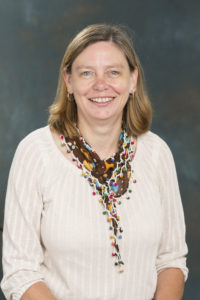
coPI: Laura Justice (EHE, Department of Educational Studies)
coPI: Jackie Goodway (EHE, Department of Human Sciences)
coPI: Arya Ansari (EHE, Department of Human Sciences)
Postdoc: Jerraco Johnson (EHE, Department of Human Studies)
Postdoc: Randi Bates (EHE, Crane Center for Early Childhood Research and Policy)
Transformational Research and Research Strengthening: A Multimethod Investigation of Early Childhood Care and Education Practices in Ethiopia
This project is a multimethod research study that is designed to lead to transformational change for early childhood care and education training programs in Ethiopia and for children’s early childhood care and education experiences.
Keeley Pratt & Brian Focht (College of Education and Human Ecology, Department of Human Sciences)
Community Partner: OSU Comprehensive Weight Management and Metabolic and Bariatric Surgery Staff and Clinical Team
Community Partner: Postoperative Bariatric Patient Advisory Group (Leaders: David Hairston, Grant Bunting, Daisy Lewis)
Community Partner: Franklin County Extension
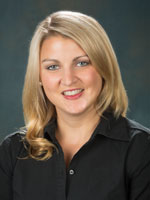
coPI: Drew Hanks (EHE, Department of Human Sciences)
GRA: Riley Whiting (EHE, Department of Human Sciences)
GRA: Zach Chaplow (EHE, Department of Human Sciences)
GRA: Lori DeScenza (EHE, Department of Human Sciences)
GRA: Kathryn Dispenette (EHE, Department of Human Sciences)
GRA: Haley Kiser (EHE, Department of Human Sciences)
Undergrad: Mariya Al-Ghawi, (EHE, Department of Human Sciences)
Creating Transformative Change by Establishing Postoperative Bariatric Surgery Resources in the Columbus Community
The main objective of this project is to develop, pilot, and evaluate the utilization of community-based supports and resources for postoperative bariatric surgery patients, in communities with a high prevalence of patients of color, to prevent weight recidivism.
Kelly M. Purtell (College of Education and Human Ecology, Department of Human Sciences)
Community Partner: Colin McGinnis (South Side Early Learning)

coPI: Shayne Piasta (EHE, Department of Teaching and Learning)
Postdoc: Rhodesia McMillian (EHE, Department of Educational Studies)
GRA: Caroline Bartholomew (EHE, Department of Human Sciences)
Undergrad: Sydney S. Green (College of Arts and Sciences)
A Big Idea for Little Learners: Leveraging Teacher Wage Increases to Improve Preschool Quality
This project will use multiple methods to examine the way in which teacher wages shape the experiences and development of preschool teachers and the children they serve, and to evaluate potential new ways of increasing wages locally.
Rick Voithofer (College of Education and Human Ecology, Department of Educational Studies)
Community Partner: Metro Middle and High Schools
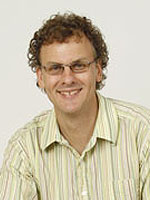
coPI: Lin Ding (EHE, Department of Teaching and Learning)
coPI: Chris Orban (College of Arts and Sciences, Department of Physics)
coPI: Stephen Lewis (Marietta College, Department of Education)
coPI: Saber Khan (Processing Foundation)
Postdoc: Dr. Lucia Chacón-Díaz (EHE, Department of Educational Studies)
Undergrad: Jacob Moore (College of Arts and Sciences, Department of Computer Science)
Undergrad: Victoria Hartman (College of Arts and Sciences, Department of Physics)
Undergrad: Emily Caroscio (College of Arts and Sciences, Department of Computer Science)
An Integrated Approach to Computer Science Education Emphasizing Science and Math Literacy, Self-Expression and Citizenship
Through a partnership with Metro middle and high schools, we will perform curriculum development and scholarly work that will contribute to the national debate over coding, including redefining the relationship between computer science (CS) and other disciplines and what kinds of interventions and policies can transform how digital literacy is conceived and taught.
Jiangjiang (Chris) Zhu (College of Education and Human Ecology, Department of Human Sciences)
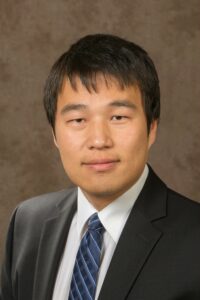
Community Partner: Abbott Nutrition Research
coPI: Yael Vodovotz (OSU Center for Advanced Functional Food Research and Entrepreneurship, Department of Food Science and Technology)
GRA: Shiqi Zhang (EHE, Department of Human Sciences)
Undergrad: Amy Verway-Cohen (EHE, Department of Human Sciences)
Impact of Prebiotics on the Gut Health in an Infant Gut Model
This project will apply human infant microbiome models combined with the state-of-the-art mass spectrometry-based metabolomics approaches to decipher the prebiotics modulated gut microbial metabolic changes.
2019 Dean’s Emerging Scholars Seed Grant Awardees
This year’s seed grant program required the early career research to identify a faculty mentor inside and outside the college/university to partner with them on obtaining pilot data for the development of a future grant application.
Lauren Jones (College of Education and Human Ecology, Department of Human Sciences)

Internal Mentor: Tansel Yilmazer, Associate Professor, Consumer Sciences, Department of Human Sciences, The Ohio State University
External Mentor: David Neumark, Distinguished Professor of Economics and Director of ESSPRI, Department of Economics, University of California, Irvine
The Long-Term Effects of the Earned Income Tax Credit on Health Outcomes
The focus of this project is to study the long-term effects of the Earned Income Tax Credit (EITC), one of the largest anti-poverty programs in the United States which benefits underserved and under-represented populations such as disabled individuals and low-income, working parents. The EITC provides significant income support to low- and medium-income working families with eligible children. Since its inception in 1975, the credit has been expanded significantly, especially for larger families and families living in certain states. A long line of literature has demonstrated positive effects of the policy on short-term outcomes; however, no studies have as yet demonstrated the long-term effects of the policy. If year-to-year behavior changes persist, then long-term effects may be very different than short-term effects.
Minjung Kim (College of Education and Human Ecology, Department of Educational Studies)
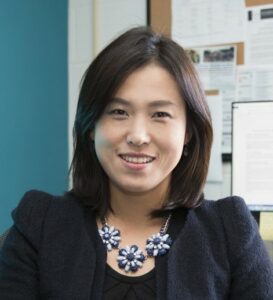
Internal Mentor: Ann O’Connell, Professor, Quantitative Research, Evaluation, and Measurement (QREM), Department of Educational Studies, College of Education and Human Ecology, The Ohio State University
External Mentor: Oi-man Kwok, Professor, Research, Measurement, and Statistics (RMS), Department of Educational Psychology, College of Education, Texas A&M University
Assessing Causal Mechanisms in Complex Educational Data: A New Approach of Multilevel Mediation
The focus of this project is to improve the accuracy of the current approach of multilevel mediation analysis when there is a change in group-membership over time. Specifically, this project aims to utilize the developed mediation analysis to understand the causal mechanisms between SES backgrounds and academic achievement outcomes. According to a recent report by the Center for Education Policy Analysis, the achievement gap between students from high- and low-socioeconomic status (SES) backgrounds has increased globally over the last 50 years. Under this circumstance, it is increasingly important to understand the causal mechanisms between SES backgrounds and academic achievement outcomes. Although mediation analysis has been popularly used to investigate causal relationships, it has a limited utility when there is a complexity in the nested structure of data (e.g., students are nested or clustered within schools). More specifically, when there is a change in cluster- or group-membership, clustering has not been appropriately accounted for when analyzing the mediation effect.
Charis Price (College of Education and Human Ecology, Department of Educational Studies)

Internal Mentor: Laura Justice, Executive Director, Schoenbaum Family Center & Crane Center for Early Childhood Research and Policy, Distinguished Professor, Educational Psychology, Department of Educational Studies, College of Education and Human Ecology, The Ohio State University
External Mentor: Tim Lewis, Professor, Department of Special Education, University of Missouri
Implementation of a Multi-Component Intervention to Teach Behavioral Expectations
With the rising incidence in young children being suspended and expelled from preschool settings, ongoing examination of evidence-based social/emotional/behavioral interventions is essential. The purpose of this study, called “Project HEAR+T”, is to examine the impact of a class-wide intervention to teach behavioral expectations to young children across targeted routines and transitions. Project HEAR+T will also examine the usability, acceptability, and feasibility of the intervention for early childhood teachers who work in inclusive and urban early childhood settings.
Kelly Purtell (College of Education and Human Ecology, Department of Human Sciences)

Internal Mentor: Laura Justice, Executive Director, Schoenbaum Family Center & Crane Center for Early Childhood Research and Policy, Distinguished Professor, Educational Psychology, Department of Educational Studies, College of Education and Human Ecology, The Ohio State University
External Mentor: Dorthe Bleses, Professor, School of Communication and Culture, Aarhaus University
Understanding Parental Mindsets: Origins and Implications for Early Childhood Development
The goal of this grant is to conduct pilot work in the U.S. that can be used to submit a larger grant proposal focused on understanding parental mindsets in a cross-cultural perspective. This cross-cultural work will focus on understanding how societal inequality and the availability of social benefits shapes mindsets. Establishing measures and initial information about the predictors and child outcomes of parental mindsets is an important first step in this larger program of research. Ultimately, this work will contribute to our understanding of how parents view their role in their children’s lives and inform future interventions designed to improve the developmental contexts of young children.
Winston Thompson (College of Education and Human Ecology, Department of Educational Studies)
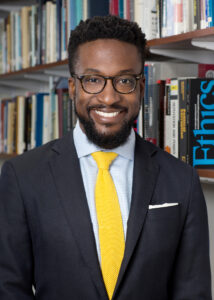
Internal Mentor: Samuel Hodge, Professor, Kinesiology, Department of Human Sciences, The Ohio State University
External Mentor: Jacquelyn Meshelemiah, Associate Professor and Carole Anderson Faculty Fellow, College of Social Work/Office of Academic Affairs, The Ohio State University
With Abiding Morality and an Enduring Sense of Justice: An Investigation of the Meanings Health and Physical Education Professionals Ascribe to their Involvement in the Restoration of School Programs
This research project explores the meaning health and physical education professionals ascribe to their resilience and involvement in the restoration of school programs following the devastating 2017 Hurricane María in Puerto Rico. In this inquiry, the research team aims to employ philosophical methods of conceptual analysis alongside standard social scientific methods in order to analyze the resources, challenges, stressors, and sustaining moral values within the experiences of the target community. The philosophical arm of the project will draw upon collected data in order to interrogate 1) the sense of moral obligation to one’s vocational duties as expressed under conditions of resource scarcity and 2) the degree to which a conception of restorative justice animates these professionals in their response to the socio-political context and aftermath of a natural disaster.
2017 EHE Seed Grant Awardees
This year’s seed grant program required a collaboration between researchers in EHE and Arts and Sciences.
Lin Ding (Teaching and Learning) and Ian Krajbich (Arts and Sciences)

Discovery Through the Eyes of Problem Solvers: Using Eye-Tracking Technology to Explore the Mechanisms of Successful and Unsuccessful Approaches to Synthesis Physics Problems
This project is aimed at using eye tracking to study attention patterns of experts and novices as they solve novel synthesis physics problems. These problems involve multiple topics typically taught in different chapters and at various time points. Successful strategies for synthesis problems differ considerably from those for traditional physics tasks.
Leslie Moore (Teaching and Learning) and Monique Mills (Arts and Sciences)
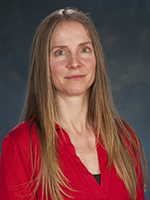
Assessing Students’ Narrative Language: Emic and Etic Perceptions
The goal of the proposed exploratory study is to expand the empirical basis on which to establish best practices for assessing the narrative language of school-age Black students—a population which tends to underperform academically compared to Asian and White students. Although the factors that contribute to these educational disparities are complex and myriad, language skills form the bedrock of academic success.
Elaine Richardson (Teaching and Learning) and Wendy Smooth (Arts and Sciences)

Girls of Color as Social Change Agents: Identifying Pathways to Leadership
This project applies insights from political science, women’s and gender studies and girls’ empowerment studies to understand girls of color and their leadership aspirations. Using focus groups with girls of color ages 8-14, we seek to identify how girls of color respond to role models in politics with whom they share some demographic identity markers.
Ouliana Ziouzenkova (Human Sciences), Randy Nelson (College of Medicine) and Jonathan Parquette (Arts and Sciences)
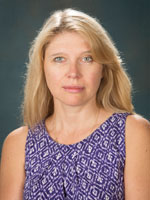
Development of Nanoscaffold-Delivery of Insulin-Sensitizing Proteins to Target Diabetes
We propose to develop nanostructured protein scaffolds for the safe delivery of insulin and other proteins, such as epiregulin, shown to be capable of overcoming insulin resistance and obesity in our preliminary studies. The successful completion of this project will address a long-standing problem in achieving lasting treatment of chronic diseases with protein therapeutics.
2016 EHE Seed Grant Awardees
This year’s seed grant program required an assistant professor work with a tenured faculty member.
Theodore Chao & Michael Battista (Department of Teaching and Learning)
Developing and Pilot Testing of an Electronic Environment for Helping Elementary Teachers Attend to and Understand their Student’s Mathematical Thinking

The goal of this project is to develop and pilot test a new electronic environment in which teachers collaborate virtually to learn how to assess, interpret, and instructionally guide the development of their students’ mathematical reasoning. Using the junior PI’s expertise in learning technology and the senior PI’s research-proven Cognition Based Assessment (CBA) Learning Progressions methodology, we will build a mobile/online environment in which mathematics teachers collaborate on learning to use CBA to assess, interpret, and instructionally guide the development of their students’ mathematical thinking. This system will enable teachers to easily upload video of their students explaining how they solve specially designed CBA assessment tasks and to collaboratively analyze and discuss these videos, while at the same time, learning to make research-based interpretations of students’ reasoning.
Cristian Gugiu (Department of Educational Studies) & Mihaiela Gugiu (Crane Center for Early Childhood)
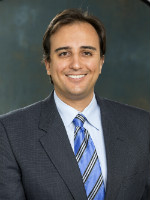
Do Background Variables Matter to Ratings of Teacher Effectiveness?
The national movement to hold teachers accountable has led to the development of value-added modeling (VAM). This family of analytical procedures purports to measure growth in student achievement and attribute it to teacher effectiveness. Yet, debate persists about whether the growth is solely attributable to teachers or possibly also to exogenous variables. The standard VAM method claims to control for all extraneous variables but this claim has not been fully vetted. This study will test the claim against several parental and child factors found to predict academic achievement. We will also investigate the personnel and policy implications of VAM for “ineffective” teachers.
Michael Betz & Anastasia Snyder (Department of Human Sciences)
The Shale Boom’s Effect on the Distribution of Income and Wealth in Rural Communities: Implications for Families

We are proposing to investigate how shale gas development in the United States is affecting household economic outcomes and financial behavior across the income distribution and according to family composition. One of the most challenging aspects of our research is that shale gas development occurs almost exclusively in rural areas where data is limited. We plan to overcome this difficulty by accessing the United States Census Bureau’s restricted access data, which contains detailed data on rural households.
Kelly Purtell (Department of Human Sciences) & Jessica Logan (Crane Center for Early Childhood)

Producing High Quality Childcare: Barriers and Best Practices in Columbus Childcare Centers
Although quality of child care is a key ingredient in the preparation of children for elementary school, only a small portion of child care centers are considered ‘high quality’ by researcher and policymaker standards alike. Furthermore, little is known about what strategies child care centers can use to improve their quality or barriers that prevent them from doing so. The goal of this project is to redress this gap through the development of a new online survey and the examination of responses to this survey by child care center directors across Columbus.

